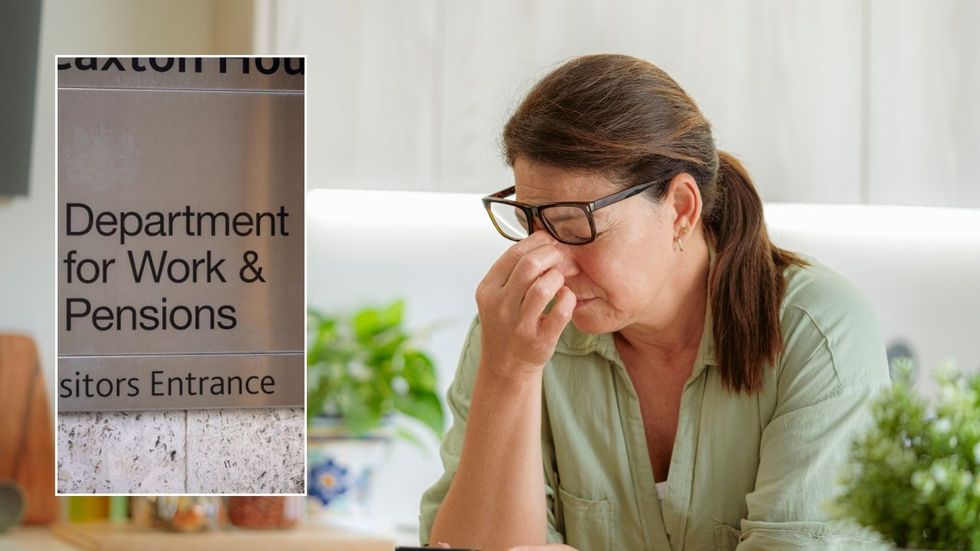Patrick O'Donnell
Guest Reporter
Chancellor Rachel Reeves's decision to raise National Insurance on employers could cause a "ripple effect" which may see Britons' pension savings reduced by £5,000, especially those who are carers.
Unpaid carers are preparing to be awarded a significant income boost next year once the Department for Work and Pensions (DWP) raises the rate of Carer's Allowance.
However, analysts have warned that this hike could be offset by the Chancellor's pending tax rate on businesses.
During last month's Autumn Budget, Reeves confirmed that National Insurance rate paid by employers would go up by 1.2 percentage points to 15 per cent.
This is levy which is paid by both workers and businesses with Britons needing 35 years of contributions under their belt to access the state pension.
The move to raise the rate paid by employers has been met with backlash from major retailers in the UK, including Sainsbury's, Tesco and Asda.
Do you have a money story you’d like to share? Get in touch by emailing [email protected].

Leaders of these high street giants have claimed the tax rise could result in job losses, store closures and decentivise growth.
Pending pressure on the private sector could hurt carers who are working a second job to make ends meet.
Lisa Picardo, the chief business officer UK at PensionBee, broke down what is at stake for Britain's unpaid carer community.
Picardo explained: "Changes to employers’ National Insurance Contributions could disproportionately affect carers, who are already navigating the challenges of balancing work with caregiving responsibilities.
"The increased cost burden on employers may lead to a decline in part-time job opportunities which many carers depend on to navigate their dual responsibilities.
"Without flexible working options, carers risk being excluded from the workforce entirely."
According to the pensions expert, this retirement issue particularly affects women who are more likely to work part-time or have carer role. Notably, their pension pots could be in the firing line.
Based on PensionBee's Care's Pension Gap Report, for very year an unpaid carer is outside the workforce, their pension pot is slashed an estimated £5,000.
LATEST DEVELOPMENTS:

Part-time carers also see their retirement savings reduced by around £2,000 as a result.
"This creates a ripple effect, threatening their financial security and independence later in life," Picardo addded.
"While the planned increase to the earnings limit for unpaid carers in April 2025 is a welcome step, policymakers must ensure that carers are supported, not penalised, for their essential contributions to society.
"Safeguards should be in place to protect part-time work opportunities and the vital role carers play in our communities should be reflected in policies that uphold their financial stability and promote gender equality in the workforce and beyond."
Find Out More...
Unpaid carers are preparing to be awarded a significant income boost next year once the Department for Work and Pensions (DWP) raises the rate of Carer's Allowance.
However, analysts have warned that this hike could be offset by the Chancellor's pending tax rate on businesses.
During last month's Autumn Budget, Reeves confirmed that National Insurance rate paid by employers would go up by 1.2 percentage points to 15 per cent.
This is levy which is paid by both workers and businesses with Britons needing 35 years of contributions under their belt to access the state pension.
The move to raise the rate paid by employers has been met with backlash from major retailers in the UK, including Sainsbury's, Tesco and Asda.
Do you have a money story you’d like to share? Get in touch by emailing [email protected].

Leaders of these high street giants have claimed the tax rise could result in job losses, store closures and decentivise growth.
Pending pressure on the private sector could hurt carers who are working a second job to make ends meet.
Lisa Picardo, the chief business officer UK at PensionBee, broke down what is at stake for Britain's unpaid carer community.
Picardo explained: "Changes to employers’ National Insurance Contributions could disproportionately affect carers, who are already navigating the challenges of balancing work with caregiving responsibilities.
"The increased cost burden on employers may lead to a decline in part-time job opportunities which many carers depend on to navigate their dual responsibilities.
"Without flexible working options, carers risk being excluded from the workforce entirely."
According to the pensions expert, this retirement issue particularly affects women who are more likely to work part-time or have carer role. Notably, their pension pots could be in the firing line.
Based on PensionBee's Care's Pension Gap Report, for very year an unpaid carer is outside the workforce, their pension pot is slashed an estimated £5,000.
LATEST DEVELOPMENTS:
- Farmers slam Labour's U-turn proposal on inheritance tax hike: 'Better options on table!'
- Stamp duty to 'increase' by 110%, Coventry Building Society warns
- Starmer defends National Insurance raid as supermarkets revolt against tax hike

Part-time carers also see their retirement savings reduced by around £2,000 as a result.
"This creates a ripple effect, threatening their financial security and independence later in life," Picardo addded.
"While the planned increase to the earnings limit for unpaid carers in April 2025 is a welcome step, policymakers must ensure that carers are supported, not penalised, for their essential contributions to society.
"Safeguards should be in place to protect part-time work opportunities and the vital role carers play in our communities should be reflected in policies that uphold their financial stability and promote gender equality in the workforce and beyond."
Find Out More...